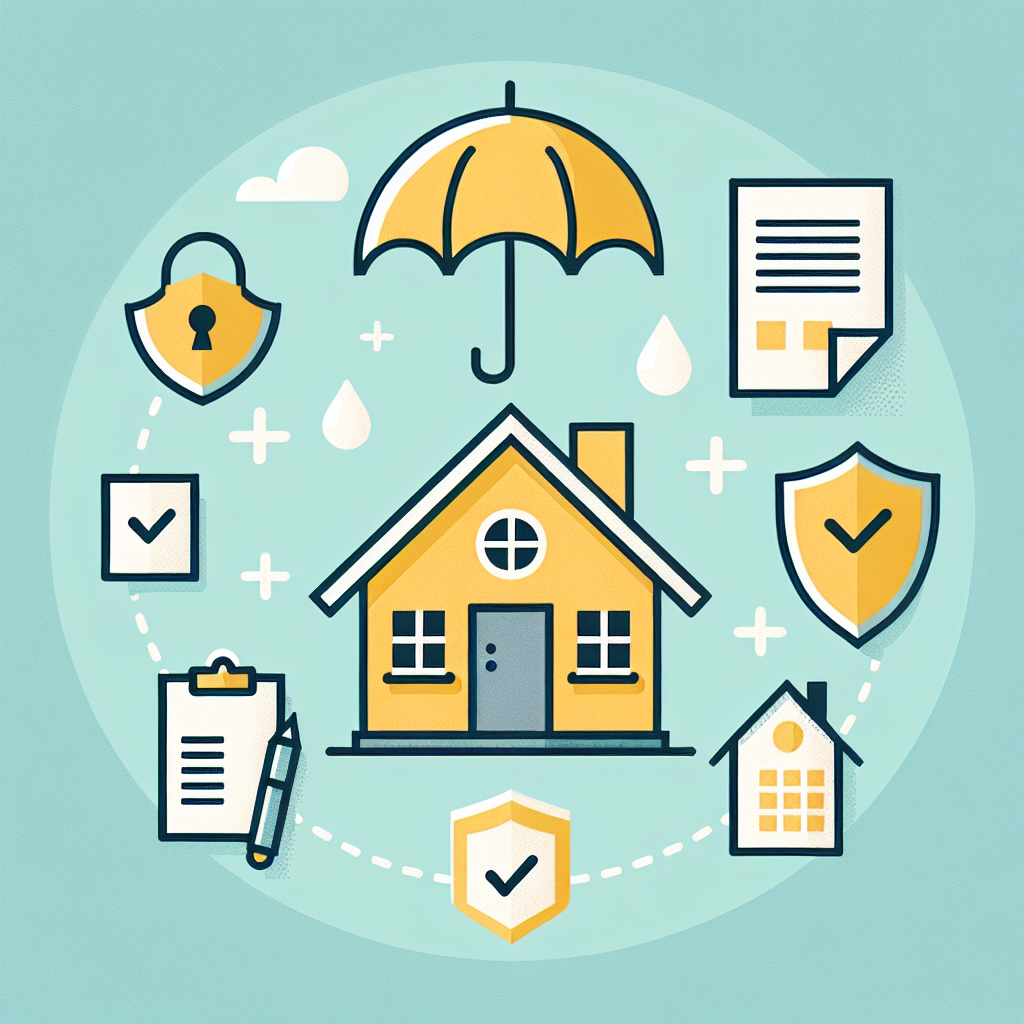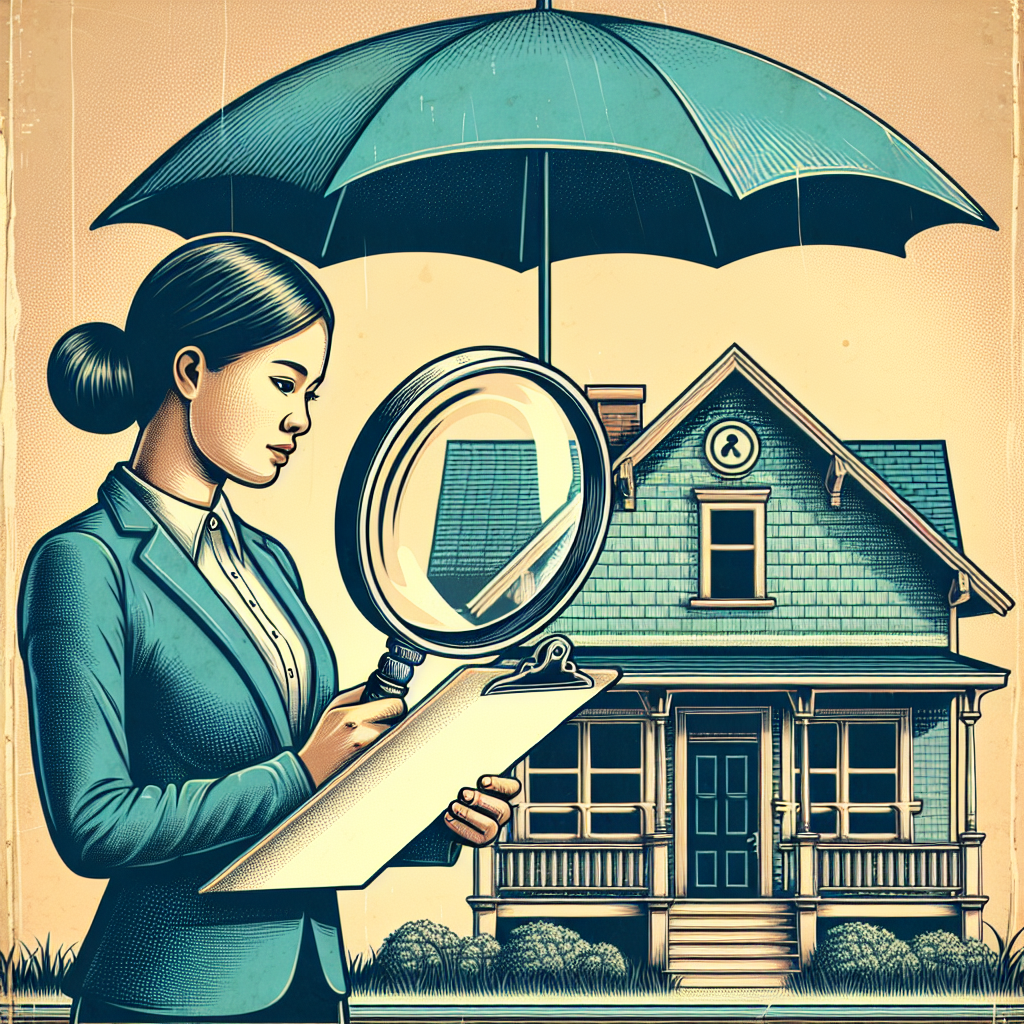Filed under Home Insurance on
Understanding Basic Home Insurance Coverage

Home insurance is an essential aspect of responsible homeownership, safeguarding one of your most significant investments against unforeseen losses. Understanding basic home insurance coverage is crucial, not only to ensure you are adequately protected but also to manage costs effectively. In this comprehensive guide, we'll delve into the essentials of home insurance, helping you make informed decisions tailored to your needs.
What is Basic Home Insurance Coverage?
Basic home insurance coverage, often referred to as homeowners insurance, is a type of property insurance that covers losses and damages to an individual's house and assets in the home. This type of insurance typically includes coverage for interior and exterior damage, loss or theft of possessions, and personal liability for harm to others. By understanding basic home insurance coverage, homeowners can protect their properties and mitigate risks associated with unforeseen events.
Types of Coverage Provided
- Dwelling Coverage: This component covers the physical structure of your home, including walls, roof, and built-in appliances. It protects against perils like fire, windstorms, and hail, ensuring the costs to repair or rebuild your home are covered.
- Personal Property Coverage: This covers the contents of your home, such as furniture, electronics, and clothes, against theft or damage. Understanding the limits and exceptions of this coverage is critical to ensure adequate protection of your belongings.
- Liability Protection: This aspect covers legal expenses resulting from property damage or bodily injury that you or family members cause to others. It also extends to incidents involving pets, providing a safety net for various situations.
- Additional Living Expenses (ALE): If your home is uninhabitable due to a covered peril, ALE coverage will cover the cost of temporary housing, meals, and other living expenses.
Why Home Insurance is Important
Home insurance is vital in protecting your biggest investment from unexpected disasters. Understanding basic home insurance coverage means safeguarding your finances against potential losses that could otherwise be devastating. With natural disasters increasing due to climate change, having solid insurance coverage has become even more critical for homeowners.
Financial Security
One of the primary reasons for obtaining home insurance is financial security. In the event of significant damage due to events such as a fire or a severe storm, the cost of repairs or rebuilding can be exorbitant. Home insurance helps cover these costs, ensuring that homeowners are not left facing immense financial burdens alone.
Peace of Mind
Possessing a comprehensive home insurance policy provides peace of mind, knowing that your home and belongings are protected against various risks. By thoroughly understanding basic home insurance coverage, you maintain a sense of security and are better prepared to handle unexpected situations.
Compliance with Mortgage Requirements
Most mortgage lenders require borrowers to secure home insurance as part of their loan terms. By maintaining adequate coverage, you comply with these requirements and ensure your mortgage remains in good standing. Understanding basic home insurance coverage is thus not only about protection but also a financial obligation for many homeowners.
Key Factors Affecting Home Insurance Cost
The cost of home insurance can vary greatly depending on several factors. Being aware of these factors can help you better understand and potentially reduce your premiums.
Location
The location of your home significantly impacts your insurance cost. Homes situated in areas prone to natural disasters or high crime rates typically have higher premiums. Understanding this aspect of basic home insurance coverage can help you make strategic decisions when purchasing a home.
Home's Age and Condition
Older homes or those in poor condition are often more expensive to insure due to the higher likelihood of requiring repairs. Maintaining your home can decrease your insurance costs and ensure coverage matches your needs.
Coverage Amount and Type
The extent and type of coverage you select will directly affect your premium. Higher coverage limits or additional policy options, like flood insurance, will increase your costs. Understanding basic home insurance coverage options helps in balancing adequate protection and affordability.
Deductible Amount
The deductible is the amount you pay before the insurance kicks in. Higher deductibles generally result in lower premiums, making it crucial to choose a deductible that aligns with your financial situation while comprehending your coverage comprehensively.
How to Optimize Your Home Insurance Policy
To optimize your home insurance policy, consider these strategies that manage costs while ensuring comprehensive protection.
Regularly Review Your Policy
Annually reviewing your home insurance policy ensures it remains aligned with your current needs and circumstances. Make necessary adjustments to dwelling coverage or personal property protection to adequately account for major purchases or home improvements. Understanding basic home insurance coverage facilitates these reviews and adjustments.
Shop Around for Best Rates
Insurance rates vary by company, so obtaining multiple quotes can reveal opportunities for cost savings. Be sure to compare coverages and policy limits when evaluating quotes to ensure you're receiving the best deal without sacrificing coverage. Understanding basic home insurance coverage helps in making informed comparisons.
Improve Home Security
Enhancing your home's security measures can lead to discounts on your home insurance premiums. Installing smoke alarms, security systems, and deadbolts lowers risks and demonstrates proactive risk management to insurers, potentially resulting in reduced costs.
Bundle Policies
Many insurers offer discounts for bundling multiple policies, such as home and auto insurance. This strategy can lead to significant savings, making it a smart financial move while maintaining comprehensive coverage across different insurance needs.
The Future of Home Insurance
Understanding basic home insurance coverage requires staying informed about industry trends and emerging technologies that influence the landscape. As smart home technology advances, insurers may offer more tailored policies and pricing based on real-time data collection from connected devices.
Additionally, the increasing frequency and severity of natural disasters necessitate evolving coverage options to address these ever-present risks. By staying informed about industry trends and adapting accordingly, homeowners can better navigate the complexities of the home insurance market.
Conclusion
In conclusion, understanding basic home insurance coverage is a crucial part of protecting your home, belongings, and financial well-being. By familiarizing yourself with the various components, optimizing your policy, and staying vigilant about industry trends, you can ensure that your home insurance coverage provides the protection and peace of mind you need. Take the time to evaluate your policy, explore competitive rates, and leverage discounts to secure comprehensive, affordable coverage for your home. Embrace proactive measures to mitigate risks, and remain informed about changes in the industry to adapt your coverage to the ever-changing environment. With these strategies, you'll be well-equipped to safeguard your most significant investment and secure peace of mind for you and your family.





